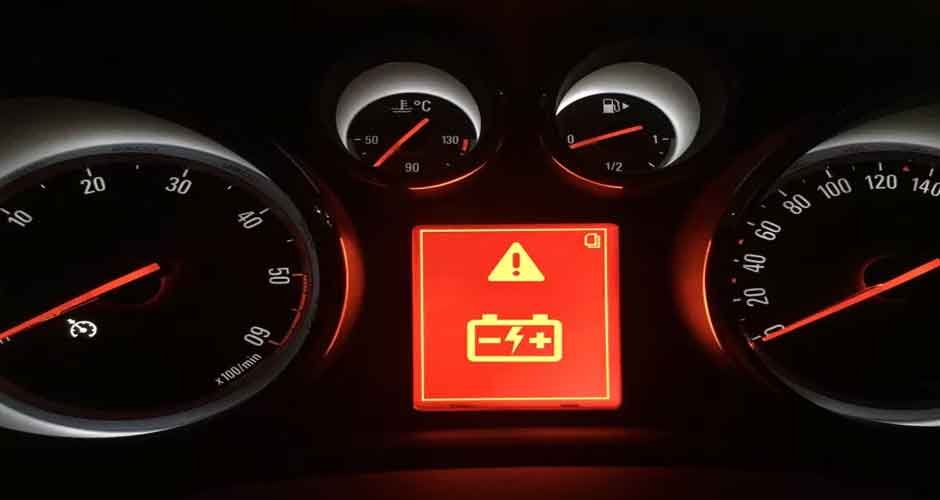The battery in your automobile is an essential component, and in order to avoid unplanned failures, you must recognize the warning indications of a depleting battery. Early detection of these symptoms might spare you the hassle of finding yourself stranded in the event of a dead battery. This post will discuss five clear indicators that your automobile battery could be nearing the end of its useful life.
1. Slow Engine Crank:
A sluggish engine crank is one of the first signs of a failed automobile battery. The engine should start easily and fast when you turn the key. A slow or delayed start may indicate that the electrical system is having trouble supplying the starting motor with the energy it needs. This slowness is frequently the consequence of the battery’s declining capacity, which is an indication of advanced age. A car battery’s capacity to provide a strong surge of energy for starting the engine decreases with age. The lower power output causes the sluggish crank, which suggests that the battery may not be keeping a charge as well as it should. If you ignore this indication, you can find yourself in a scenario where the battery completely fails to ignite the engine, leaving you stuck.
2. Diminished Headlight Brightness:
The way your headlights work usually indicates how well your automobile battery is doing. A failing battery is evident if you notice a noticeable drop in headlight brightness when the engine is running or when the vehicle is idle. Reduced power output has an impact on the electrical parts, and as headlights are one of the main users, they may be used as a visual cue for battery health. Headlights draw a lot of power, and a battery that is having trouble charging might not be able to keep the lights shining as brightly as they should. Not only do dim headlights make it harder to see, but they also suggest that the battery may be getting too old to continue powering essential electrical systems.
3. Warning Light on the Dashboard:
In addition to having advanced onboard diagnostics, many modern cars also include dashboard warning lights for the battery and charging system. This indicator indicates that there is a problem with the battery itself or the charging mechanism if it lights. Disregarding this alert may result in battery failure and eventual car trouble. It is essential to get your battery or charging system checked out as soon as the warning light shows. By identifying irregularities in the battery or recharging system, the dashboard warning light acts as an early warning system. It can indicate problems like a dead battery or a broken alternator. By taking immediate action in response to this alert, you can stop a total battery failure and take care of the underlying issues before they get worse. If you’re in Austin and facing such issues, considering a professional service for mobile battery replacement in Austin can be a convenient solution to address your car’s battery needs.
4. Electrical Component Issues
A dead battery might cause problems with the several electric parts in your automobile that power these functions. Power windows, seats, and other electrically powered accessories may not function properly, which might indicate that the battery is having trouble maintaining a steady power supply. The infotainment system or radio may occasionally return to factory settings, signaling a brief power outage. A robust automobile battery guarantees a consistent power source for all electrical parts. These parts may encounter sporadic malfunctions or disturbances as the battery decreases. If you see odd behavior, including windows that move more slowly than usual or devices that stop working, you should think about the battery as a possible source of the problem.
5. Unusual Smell from the Battery
A car battery that is deteriorating might smell strongly like sulfur. It’s alarming if you smell something strange, like rotten eggs, next to the battery. This smell is frequently a sign of a battery breach that allows hydrogen gas to escape. A leaky battery can be dangerous in addition to impairing performance. It’s essential to get the batteries checked out right away if you detect this stench. The battery fluid leaked and reacted with other components, giving out a sulfurous odor. The battery connections and the surrounding surfaces may get corroded by this leak. It is essential to take immediate action to fix a leaking battery to protect yourself and others.
Conclusion
You may take action to remedy battery concerns before they worsen by paying attention to these warning indicators. Frequent upkeep may extend the battery’s life, such as cleaning it and determining its age. If you notice any of these symptoms, you should get your car’s battery checked and, if needed, replaced. By taking preventative action, you can make sure that the electrical system in your car runs well, avoiding unplanned repairs and improving your entire driving experience.






